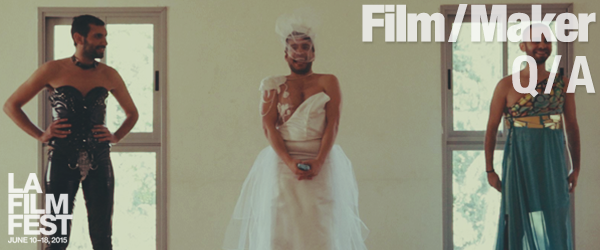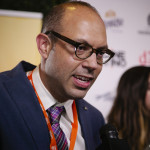Humanizing a Complicated Political Issue–The Story Behind Oriented

Behind every (fill in the blank) great/glorious/funny/scary/sad story told on film is an equally great/glorious/funny/scary (yes, probably sometimes) sad story: the one about how the whole thing went from being an idea in a brain (probably many years ago) to a big screen premiere at a big-time Festival. In this Film/Maker Q/A blog series, our LA Film Fest programmers interview our LA Film Fest filmmakers to discover the stories behind the story.
Los Angeles Film Festival Associate Programmer Samuel Douek talked with Oriented director Jake Witzenfield about his film that follows three gay Palestinian-Israelis who offer an intimate glimpse into their lives as the personal is relentlessly made political. Working against media misrepresentations of being oppressed by Palestinian communities, and struggling against the occupation from the “inside,” these young people are neither sell-outs nor in need of saving.
How did you meet the subjects of your documentary?
I saw a video clip of Qambuta (a cultural resistance collective) and was very intrigued. I was looking for a story, and through my flatmate, I got the number of Khader, the main guy behind it. We met for drinks and talked a lot, and he opened my mind to a lot of things that are happening with the Palestinian culture in Israel. I realized that this generation has a story to tell.
What was the process like of gaining their trust?
We just started growing as friends, and little by little they opened up. Now I’m very good friends with all the characters. After spending time with them, I realized that their identity is so complicated. How can that not make for interesting characters? Knowing the Middle East through the news and academia is not the same as knowing the Middle East through personal relationships. All of the characters have seen the film, and they like it very much. I first learned of them through a Youtube clip where they were trying to explain their culture, and the documentary is trying to amplify that.
When you started shooting the film, did you have a specific end point in mind?
No, not at all. I was shooting their lives and relationships. I did not have an agenda. And because of my lack of film knowledge, I didn’t know I had a film until I saw how the story was growing. There where two drafts of the film; the second one came after the war in July [2014]. At one point, I thought, ‘I could shoot this forever,’ so I just finalized what I had. But when the war broke out last summer, and more changed in the characters’ lives and, through that, we found the right cut.
What was the most challenging aspect of tackling this topic?
Letting go of my cultural baggage and harnessing the sensitivity and reflexivity to tell another culture’s story. And at the same time, it was the most gratifying thing about making this film. Also, I was afraid to be exposed as a kid who does’t know about filmmaking. I was just trusting my eyes.
You’re Jewish, and the film tells the story of three gay Palestinian people living in Tel Aviv. Did you feel you had to defend Israel or reprimand it?
Neither. I didn’t want to use the stories of these three people to prey on or reprimand Israel. My feelings are not really black or white, but very gray. And I think that human rather than dogmatic tone comes across in the film. I’m very interested to see what effect this will have on people who are used to immediately discussing Israel and Palestine in absolute terms.
How do you think Jewish communities outside of Israel will react to this movie?
I don’t know. We will find out. I’m certain that I will hear the defensive line of argument: ‘Don’t they have a better quality of life in Israel than in other Arab countries?’ And I’m that some people will try to delegitimize the film. But, ultimately, I want to challenge people to drop their absolutism and feel the personal and intimate complexity of the identity crisis shared by the three characters at the center of the film.

